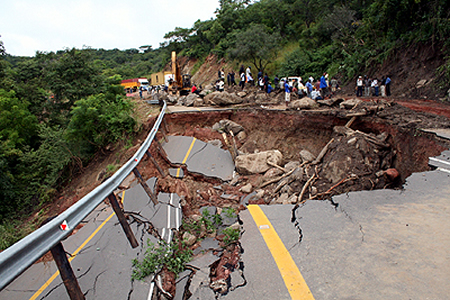THE PARALLEL UNIVERSE SERIES
ISSUE NUMBER 4: DEALING WITH UNCONTROLLED STREET VENDING
Introduction
The fourth installment in our Parallel Universe Series addresses a topic that the PF administration has demonstrated little or no appetite for resolving: the challenge of uncontrolled street vending in Zambia. The one Minister who tried to take on this responsibility, Professor Nkandu Luo, was hastily reshuffled, probably as a result of her well-intended but somewhat aggressive approach. The PF appears to be scared of the street vendors and this fear is making them incapable of taking even basic steps that would benefit vendors, market sellers, local councils and the commuting public.
[pullquote] The PF appears to be scared of the street vendors and this fear is making them incapable of taking even basic steps[/pullquote]
NAREP believes that there are solutions to the problem of uncontrolled street-vending. Before we point these out, however, we should first identify the root causes and address some of the misconceptions about why street vending continues to flourish. Examining the root cause of the problem will help us find a lasting solution and avoid the blame game.
Misconceptions about street vending
The common misconception about street vending is that it is a problem created solely by street vendors. Not only is this untrue but because of such faulty reasoning, the solution that is normally offered: “round them up and remove them from the streets” is not – and has never been – a sustainable option. When we talk about addressing the problems associated with street vending, it is important to note that this is not intended to include those who sell things that are not typically stocked on the shelves of registered stores and supermarkets – like newspapers and talk-time for our cell phones. Vendors of such goods do not generally contribute to the more common problems that tend to be associated with street vending.
What problems does street vending create?
Street vending is a long-standing challenge in Zambia. It has generally raised concern and condemnation because of the many problems that tend to be associated with it such as: disorder, lack of cleanliness, health risks from uncollected garbage and sometimes from the sale of fresh meat, loss of council revenue from unlicensed trading and, finally, the general hindrance of operations of licensed businesses. In addition, because of poor or non-existent public sanitation infrastructure, street vending increases the risk of water-borne and air-borne diseases like cholera and flu, during the wet season and from harmful bacteria throughout the year.
Who is to blame for street vending?
The root cause of street vending, surprisingly, lies less with the vendors (although they do share a lot of the blame) and more with three other groups: (i) city planners (in local councils), (ii) central government and (iii) consumers. At the very least, these other groups collectively carry just as much blame. Poor municipal planning – which is the responsibility of local councils – has meant that congestion in commercial centres and the fear of crime within cities have made it more appealing for consumers to purchase goods brought directly to them than to have to enter markets or battle for limited parking in congested towns. But even with the best planned cities, the army of vendors will continue to rise as a result of massive unemployment – something which the central government has the responsibility to help resolve by creating an appropriate environment for sustainable jobs and enterprise.
Consumers share a big part of the blame because over the years, the convenience of purchasing goods from street vendors has come to seem very normal. Street vending, after all, addresses a simple problem of supply and demand. The consumers have created the demand and the vendors have found a way to respond to this by making goods readily available to them as they move about their daily lives – in cars, on buses or on foot. If we want to curb street vending, we ought to recognise that ultimately, it is this demand from consumers that sustains it. Without the demand, there would be no incentive for supply. If we look at the problem this way, we see that the consumer is indeed a primary promoter of street vending activity. Vendors have long recognised this. They point to the fact that sitting in a newly built market – no matter how well constructed or impressive it looks – will not help them feed their children if the consumers rarely set foot there.
[pullquote]Consumers share a big part of the blame because over the years, the convenience of purchasing goods from street vendors has come to seem very normal.[/pullquote]
For the commuter, purchasing goods from a vendor is driven primarily by two things: convenience and opportunity. Think about it, if all commuters using public and private transportation stopped purchasing goods from street vendors, do you think there would still be street vending? Blaming vendors for street vending is like a person throwing his garbage out onto the street and then complaining to friends and neighbours about how messy his community has become.
Vendors will always follow the path of least resistance, identifying what the people want and knowing how they can be most easily accessed. Their lifeblood is the commuting public that finds it convenient to not have to find their way to the market or into the shops but to purchase their food and other requirements as they go along their way. All affected store owners know this. Many of them even provide the vendors with the goods they peddle so that they are not completely undercut by such effective competition. In short, they take the view that “if you can’t beat them, join them”!
The way forward
So what is the way forward? Well, the solution lies in addressing the three sources of the vending problem: convenience, opportunity and unemployment. If we consider the convenience aspect first, we will see that the current structure of commuter routes and lack of city planning in most cities in Zambia makes it hard for the travelling public to get to markets to carry out their purchases. Cities will need to be redesigned and business areas re-zoned on a master-plan that takes into account current and future development trends.
In the short to medium term, vending can be controlled and managed through the introduction of a “lot system” along certain sections of the streets on which the vendors currently operate. This approach has been successfully applied by municipalities in other countries.
[pullquote] People tend not to realise that street vendors are often hard working individuals with limited options and pressing financial and social challenges.[/pullquote]
The lot system works this way: vendors have a section of space painted out on the street and numbered as a “lot”. Each space (or lot) is rented out by the council to a vendor or even the adjacent shop owner. There are rules that must be followed regarding cleanliness standards and the type of goods that can be sold in a particular location. This is not a long term solution but would, in the short term, bring about order and cleanliness.
It would also stem the growing culture of “vendorism” which seems to be gradually taking over even those cities that do not really suffer from a chronic lack of planning. Vending is so common now, it is even happening outside many homes in high density communities.
Nothing, however, will sustainably address the problem of street vending more rapidly than creating opportunity for vendors to be truly empowered to deliver goods and services in a structured and communally responsible manner. In other words, the government must come up with an immediate plan to stimulate the creation of jobs and enterprises for our youth and women.
The NAREP Empowerment and Enterprise Plan
NAREP has developed an empowerment scheme (NAREP Empowerment and Enterprise Plan or NEEP) that would create immediate jobs and help to draw many current and future vendors off the streets by promoting sustainable livelihoods. This involves the adoption of a policy by government to allocate 10 percent of all its procurement of goods and services to youth and women enterprises that would also specifically target street vendors. This would in time be extended by law and policy to private sector procurement practices.
Here is how NEEP would work:
- 10 per cent of all public procurement contracts (determined on a turnover threshold) would be channelled through enterprises owned and operated by vulnerable groups including youth and women.
- This move alone could deliver up to 1,000 billion kwacha (KR1 billion) worth of orders to youth and women’s enterprises each year.
- In order to benefit, youth and women’s enterprises would need to be made up of between 5 and 10 people and to be registered with PACRA, ZRA, NAPSA and other such entities through an established youth or women’s NGO.
- Members of these youth and women’s enterprises will be trained to enable them to deliver on these orders through established NGO’s that are registered.
- There will be a fast-track system for registering the youth and women’s enterprises (PACRA, ZRA etc.) and vendors would only be required to pay for these charges once they had executed their first orders and been paid.
- Training will be in multiple areas (such as basic book-keeping, accounts, managing a business, rearing pigs, chickens, learning how to deliver and market goods and services) and would be paid for by the private sector as a condition for being awarded government procurement contracts.
- In time, the arrangement would be legislated so as to make the system work more smoothly (registration, monitoring, standards etc).
- Not only would NEEP create employment and enterprise development, it would also help to bring hundreds and thousands of informal sector businesses into the formal sector, ultimately leading to the reduction of PAYE.
NAREP is collecting 1,000,000 signatures in support of this plan to demonstrate to the Government that NEEP can and must be implemented as soon as possible.
Role of consumers
Addressing consumer responsibility is somewhat more complex. The starting point is to make them aware that having been part of the problem they are in fact also part of the solution. Even those that make it a point to purchase goods only in markets or from licensed traders, have a responsibility to convince others to do the same once the NEEP Empowerment Scheme is in place. If government moves fast to implement NAREP’s plan for job creation, such action need not be seen in a bad light by the vendors as they would have an alternative means of livelihood.
Conclusion
In meeting the demands of the market and providing a convenient access to daily goods, street vendors have taken the blame for motorists and the travelling public who, along with municipal authorities and central government share the bulk of the blame for the proliferation of street vending. People tend not to realise that street vendors are often hard working individuals with limited options and pressing financial and social challenges. Many are mothers, fathers, sons and daughters who like the majority of young Zambians just want to have a chance at a decent life.
Elias C. Chipimo, Jr
NAREP President
11 February 2013







